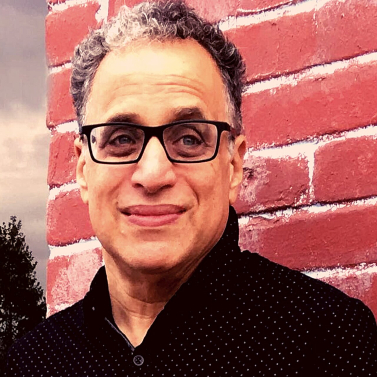
Andy Hoffer
12-Step Program Available Online
One of the ways that I got treatment for my addiction was by attending 12-step programs and working with a counselor that specializes in addiction. 12-step programs are a great way to get free assistance that can fit anywhere into your lifestyle. There are programs online and in person so it is readily accessible. A lot of addiction counselors take health insurance and can also work around your schedule. Now with most 12-step programs being online, it is easier than ever to find help within the addiction community.
Two Ways to Seek Addiction Treatment Without Compromising Your Job
Addiction treatment is utilized based on severity and in most cases two ways: Either inpatient, which may take a 30-90 day stay for detox, or participating in outpatient by attending meetings.
Some may find their addiction symptoms mild to moderate enough to go for solely outpatient.
For inpatient, one of the ways my clients have maneuvered this is seeking a consult from their primary doctor. They’ve been able to obtain a letter from their doctor detailing need for time off without mentioning substance treatment and only implying medical reasons. This helps to maintain privacy and something they can provide their employer.
Outpatient allows them to participate in person or on zoom calls making it convenient to attend after work.
I also recommend support groups as it can have additional flexibility.

Vineel Maharaj
Vineel Maharaj is a Licensed Psychotherapist at Actualize Being.

Mahesh Grossman
Outpatient Services, Relapse Preventions, and Self-hypnosis
People who give up their job to overcome an addiction usually go to a rehab facility.
To end an addiction at home, you have to replace what you get at rehab, but do it in a reduced number of hours so that you can keep working.
There are three components to this:
The first component, if you are physically addicted to a substance, is to go through withdrawal. It’s essential to see your doctor to help you with this. You can also search for intensive outpatient services or partial hospitalization programs where it may be possible to fulfill this step in the fewest days possible.
The second component in any rehab program is relapse prevention.
This is the largest portion of addiction treatment. It is carried out through discovering and healing the underlying causes of the addiction, and creating new habits as well as teaching you new ways to cope if the desire to use shows up.
One of the most efficient ways to accomplish these same goals is hypnosis. Hypnosis is well-known for helping hundreds of thousands of people quit cigarettes & lose weight, which are both forms of giving up substances.
Just as important, hypnosis is also effective at overcoming anxiety and relieving emotional pain. These are two of the main reasons people relapse. When you feel bad about something that has happened, you want to use your drug of choice to numb out.
Hypnosis gives you tools you can use to calm down and feel better in a much more effective way.
A self-hypnosis relapse prevention training study published in the American Journal of Clinical Hypnosis reported that compared stress management, cognitive behavioral therapy and hypnosis for relapse prevention, showed that the subjects who used hypnosis reported the highest levels of self-esteem and serenity, and the least anger/impulsivity
Hypnosis is also noted for the ability to help people recall and heal painful childhood memories. This is also a big part of the therapy in rehab, because these memories may subconsciously fuel your desire to use again.
Hypnosis is a vital tool for this work as well. Because hypnosis works directly with the subconscious, it often works faster than therapy. I had one client tell me that his four sessions with me were more valuable than his 20 years of psychoanalysis.
That’s why, for many people, hypnosis may be a viable alternative to quitting your job and going to rehab.
The third component that rehab provides that you need to replace is having the support of other people who are seeking sobriety.
This is where 12-Step programs come in. You can get support and mentorship from people who are going through or have gone through what you are experiencing. In addition, 12-Step meetings give you a place to go when you are lonely, which is another reason people relapse. It’s also a way to find new sober friends.
If you are committed to a life of sobriety from your particular addiction, it’s quite possible to put together a healing program where you can keep your job and still put an end to the cycle of relapses.
Important Resources for Seeking Treatment
Employee assistance program
One of the first methods that you can use is an employee assistance program. These programs are essentially created by businesses for use in such situations that involve dealing with physical or psychological health, as well as personal issues like marital or financial problems as well. In short, they are useful in providing workers with assistance in dealing with situations that have the potential to negatively impact their overall performance in the workplace. And while most of these programs are often provided in government agencies or financial institutions, some corporate organizations also provide such programs within their employee benefits packages.
Family and Medical Leave Act
Another viable option that can be pursued is the use of the Family and Medical Leave Act. This is an even more popular option that is used by many employees, and it is mostly used to provide employees with sufficient time to recuperate from a medical emergency. However, it can be used in a variety of other situations, like drug abuse treatment, as well. There are requirements you must meet before you can apply for it though, but if you do meet the criteria, you are entitled by law to be able to take a leave of absence for about 12 weeks to seek treatment without giving up your job.
Outpatient Treatment Programs
Many rehab facilities allow employees to go on with their work while pursuing the treatment as they often work together with EAPs through referrals, thus aiding workers to get the treatment they need without losing their jobs in the process. For instance, outpatient treatment programs often provide workers with the ability to either receive treatment at home or in rehab facilities, while also allowing them to maintain their daily responsibilities. In most cases, it often involves one to three days per week of treatment, while also allotting employees with the time they need to get work done.

Eden Cheng

Harriet Chan
Harriet Chan, Co-founder and Marketing Director of CocoFinder.
Addiction Covered Under ADA Protections
By taking advantage of employee assistance programs at work, employees can find treatment without risking their employment. Some employers offer intervention programs to assist employees in addressing or overcoming potential personal problems that may negatively affect their job performance or lead to absenteeism. The programs help employees who want to seek treatment without risking their jobs.
Exercising your legal rights provides another way to seek addiction treatment without losing your job. The Americans with Disabilities Act aims to protect people with disabilities from discrimination, including at work. To gain protection from the Act, you must have a mental or physical disorder that affects your work. Addiction being a mental health problem falls under the Act.
Employees can also make use of the Family and Medical Leave Act. The legislation provides employees a period to recuperate after a medical emergency and other instances, including treating substance abuse by guaranteeing up to 12 weeks of unpaid leave to seek treatment.
Talking to your boss is another approach that can guarantee keeping your job as you seek treatment. The boss being human, can empathize with your situation and come to an agreement that accommodates your treatment. The law protects the confidentiality of your addiction treatment.
What’s more, you can apply for sick leave to get treatment without losing your job. Employees earn at least one hour of paid leave for every 30 hours worked. There are legal requirements to be met before qualifying for sick leave.
This is a crowdsourced article. Contributors' statements do not necessarily reflect the opinion of this website, other people, businesses, or other contributors.
